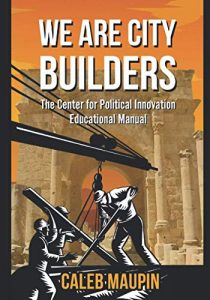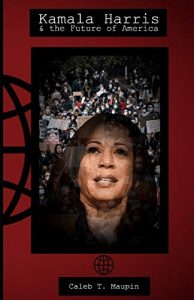Your browser is not compatible with this application. Please use the latest version of Google Chrome, Mozilla Firefox, Microsoft Edge or Safari.
Film Review: “Street Medicine – providing healthcare for the homeless”
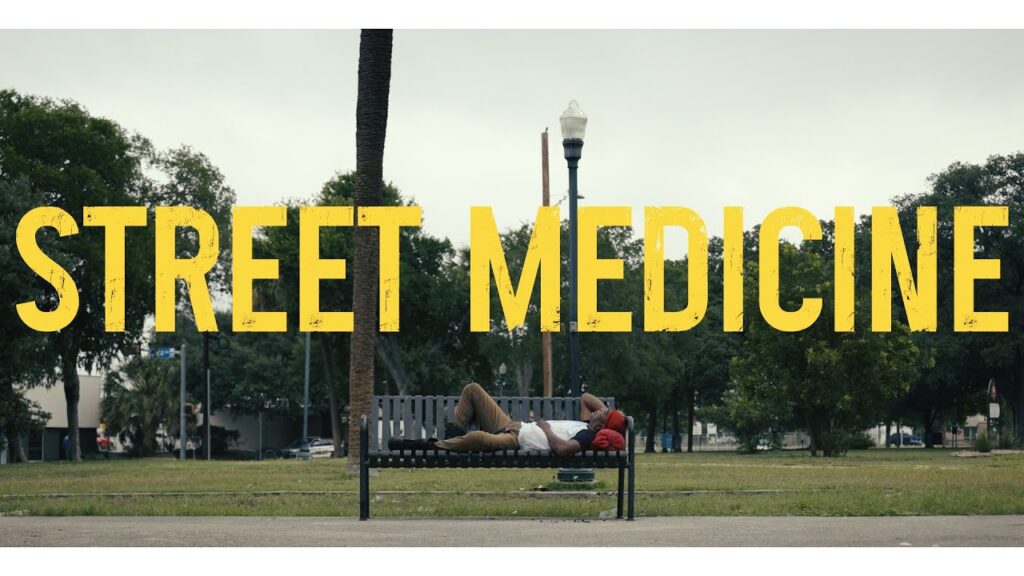
On the streets of every American city, ragged, tired people hold up cardboard signs and push grocery carts full of their remaining possessions. Some used to be nurses. Some used to be veterans. Others were artists. Now, they struggle to find a safe place to sleep at night. In San Antonio, Texas, the new documentary “Street Medicine – providing healthcare for the homeless” follows a group of unpaid medical volunteers who try their best to serve this struggling population.
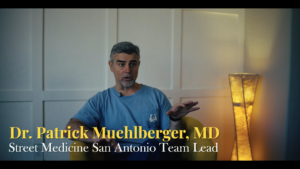
The film, produced by anti-imperialist filmmaker Robert Laurence, mainly consists of interviews with volunteers and patients of the organization Street Medicine San Antonio. In these conversations, subjects from both sides provide valuable insight into the struggles of daily life, from abuse and harassment to lack of access to wound care. Over the course of about an hour, the film paints a deeply sympathetic picture of homeless individuals trying their best to get by in a system that has forgotten about them, and a few earnest volunteers doing what they can to provide sorely-needed help.
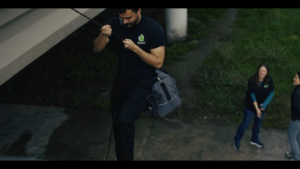 Street Medicine San Antonio has no major funders and no state support – its staff are all unpaid volunteers, even the founders, and they can distribute only what medical supplies they are able to cheaply and easily procure on a small budget. While other organizations and hospitals offer certain care to homeless and impoverished populations, Street Medicine San Antonio specializes in reaching clients where other organizations do not – its volunteers walk through homeless encampments, state shelters, and bridge underpasses with backpacks full of basic wound care supplies, antibiotics, allergy medications, and other crucial tools. Despite their limited resources, their network of connections allows them to provide a variety of services when needed, thanks to surgeons, dermatologists, and other medical professionals who are willing to offer pro bono services to their clients.
Street Medicine San Antonio has no major funders and no state support – its staff are all unpaid volunteers, even the founders, and they can distribute only what medical supplies they are able to cheaply and easily procure on a small budget. While other organizations and hospitals offer certain care to homeless and impoverished populations, Street Medicine San Antonio specializes in reaching clients where other organizations do not – its volunteers walk through homeless encampments, state shelters, and bridge underpasses with backpacks full of basic wound care supplies, antibiotics, allergy medications, and other crucial tools. Despite their limited resources, their network of connections allows them to provide a variety of services when needed, thanks to surgeons, dermatologists, and other medical professionals who are willing to offer pro bono services to their clients.
Their volunteers talk with patients as equals, never pushing treatment where it is not wanted, and focus on building trust through consistency: they show up, time and time again, and patients learn they can be relied upon. Thanks to this, many of their patients now come from referrals – people they have helped tell them of friends they know who may need assistance, and where to find them.
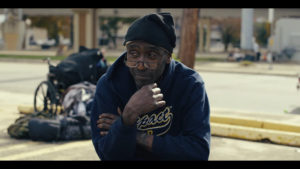
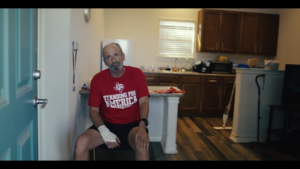
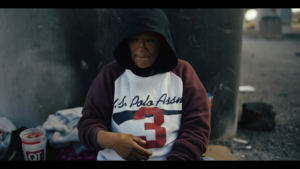
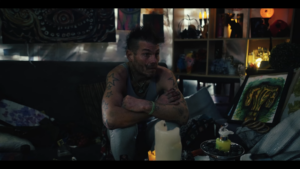
The most affecting scenes in the film are understated: simple conversations with homeless people like “Kool-Aid,” an older homeless man who does his best to serve as a mentor and community support for other homeless people in his area, but suffers from terrible burn injuries from a dispute gone wrong. Others share equally affecting stories: a veteran who feels forgotten by society, a former nurse constantly wary of all-too-common abuse, and a gentle tattooed young man saddened that passerby look at him as a threat.
The film is professionally produced and well shot, clearly and effectively depicting its subject matter. Squeamish viewers are advised to heed the content warning at the beginning – the film does contain several visceral scenes of wound care, particularly in the second half, which are emotionally affecting but may prove hard to watch for some.
CPI had the opportunity to interview filmmaker Robert Laurence, a San Antonio-based anti-imperialist who has collaborated with us on several occasions, such as the Arguing Socialism series and an explanation of the Ukraine situation. Asked about his goals for the film, Robert said he tries to make art that doesn’t tell people what to think, but instead presents opportunities to think, focusing on the commonalities Americans share rather than what divides them. Despite the prevalence of homelessness, Robert says the issue “is not real for many people,” and hopes to build viewers’ compassion by highlighting the humanity of struggling homeless people. Asked how he thought this perspective aligned with CPI’s American socialist perspective, Robert brought it back to a famous American phrase: “We the People.” Despite the ups and downs of history, he sees those three words as “very connected to [his] idea of socialism,” evidence of an enduring American spirit of togetherness and shared future.
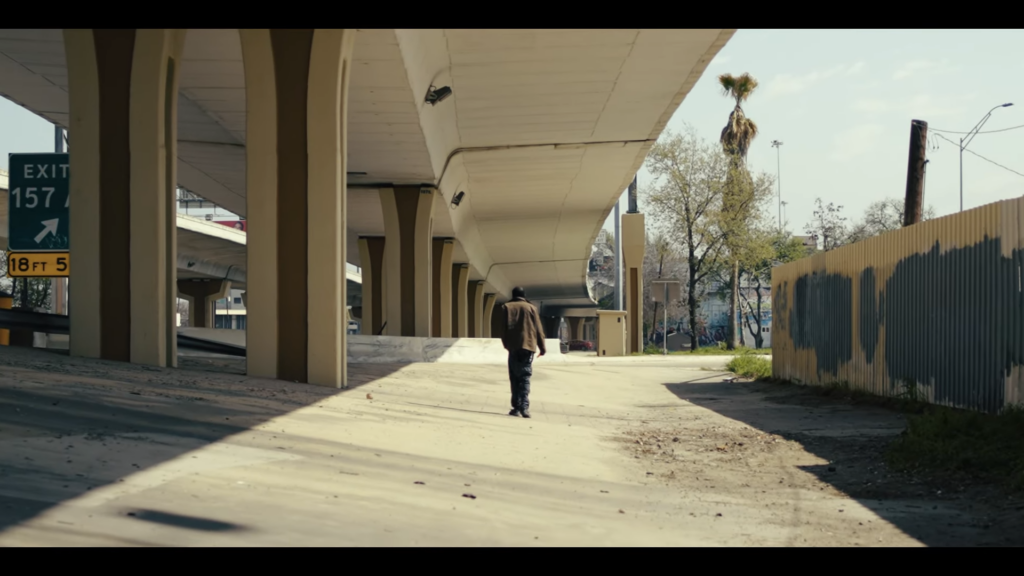
Homelessness is a painful reality for many Americans, with more and more at risk as the cost of living continues to rise. Over 650,000 Americans were homeless on any given night last year, with over 250,000 unsheltered, according to the Department of Housing and Urban Development. Meanwhile, millions of Americans are one run of bad luck away from homelessness – almost half of Americans have less than $500 in savings, leaving them financially vulnerable to a single emergency. As the American economy is squeezed tighter and tighter to enrich the few at the expense of the many, the need for organizations like Street Medicine San Antonio may grow even more dire.
It is inspiring to see brave people doing everything they can to make a positive difference in their communities. However, the volunteers of Street Medicine San Antonio and the homeless people they serve deserve more than just respect. They deserve an America where everyone has the care they need, and where the abundant wealth of this nation is used for the benefit of the people rather than to enrich a wealthy few. For their sake, and for our own sake, the American people deserve a government that fights for working families and leaves no-one out on the streets.







